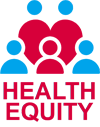PASSI d’Argento

Project Title: PASSI d’Argento (PASSI – Progressi delle Aziende Sanitarie per la Salute in Italia)
Duration: 2009 – ongoing
Main Topic
Passi d’Argento (PdA) is a national surveillance system (DPCM 3 March 2017) on people over65-year-olds, with the aim of obtaining information about quality of life, behavioural risk factors, participation in society and employment, independent living, health conditions, safety and living environment. PdA data are used to obtain population health profiles and to compare different LHUs’ profiles within the same region or between different regions and over the time. In addiction, PdA perceive health and services’ coverage and satisfaction in the elderly and, in according with the concept of Active Ageing, it “measures” the contribution that the elderly offer to society, providing support within their family and community context maintaining physical and mental health and the quality of interpersonal relationships.
Objective
The study areas covered by PDA are inspired by the World Health Organization of Healthy Active Ageing framework which consists of three main pillars: Participation, Health and Security. Information is collected through a structured and standardized questionnaire divided into 6 sections. The topics investigated are quality of life and health status perception, lifestyle (smoking habits, alcohol use, fruit / vegetable consumption, physical activity measured by the PASE score – Physical Activity Scale for the Elderly), falls, use of drugs, flu vaccination, chewing and hearing problems, depressive symptoms and social isolation signs, participation in social life, access to health care and income adequacy perception, level of autonomy (using the Katz Index of Independence in Activities of Daily Living (ADL) and the Lawton Instrumental Activities of Daily living (IADL) assessment). Study variables include socio-demographic and socio-economic conditions (gender, age, educational qualifications, economic conditions, marital status, family composition, citizenship) that are detected to stratify health indicators with the aim of orienting action towards combating health inequalities or access to services.
Type of study
The sample is randomly selected from the LHU list of beneficiaries of health services of the participating regions, stratified by sex and age. Exclusion criteria are as follows: being a resident of or having a permanent address in another region, not having a contact telephone number, being currently hospitalized or in long-term care, currently living in a nursing home, or prison, being deceased, and finally, not being a speaker of Italian. Interviews are carried out by specifically trained personnel from social and health services. The questionnaire is administered by telephone or face-to-face according to the age of the respondent, his/ her health conditions, and his/her preferences regarding the type of interview. Approximately 13,000 people are interviewed every year. In the two-year period 2017-2018 the surveillance was performed in all the Italian Regions with the exception of Lombardy, Valle d’Aosta and Molise. The response rate was 86%.
Description WP/Activity
PASSI d’Argento data show how the results in health opportunities, in terms of prevention of chronic diseases and reduction of the risk of disability, depends on the actions aimed at guaranteeing protection and equity in access to the social and health services of which the elderly need.
Expected results
Some examples:
Difficulties in accessing health and social care: One in three people over65 reports difficulties in reaching the family doctor or the health services. This prevalence is higher in people with low education, greater economic difficulties and residents in the southern regions. Ensure access to health and social care and the chance to live in a safe and healthy environment are important conditions to guarantee the public’s right to health treatment and tackle the inequalities in public health.
Among elderly people, in fact, the difficulties in accessing health services can have a greater impact then socioeconomic determinants, like education or economic resources, and even the determinants related to lifestyles
Disability: It’s a condition that may affect up to 15 in every 100 people and it occurs more frequently among women (18%), people with economic difficulties (25%) or low education (22%). Nearly the totality of the people with disabilities (99%) receive assistance, mainly from the family members much less by the public service of local health authorities. The results show that a greater proportion of people with disabilities is resident in the South of Italy (20% vs 14% in the Center and 11% in the North) and this could certainly reflect a difference in the distribution of health outcomes, but also a difference, between North and South areas, regarding the offer and/or the use of care services for the elderly that are not completely independent.
Sensory problems: Hearing impairment is more frequent among people with lower levels of education and worse economic conditions, while the use of the hearing aid takes the opposite direction and it is more used by high-income people. The prevalence of hearing problems is higher among those who report many economic difficulties (29% vs 16% in elderly with no difficulties) and among them only 2 out of 10 correct the defect with a hearing aid, while among people without economic difficulties the use of acoustic aid regards 3 out of 10 people.
The case is similar for the education: among people with a low level of education, the prevalence of hearing impairment is higher (25% vs 14%) and the use of the aid is less frequent. The health profile and the quality of life of people with a hearing impairment, not corrected with any aid, is more compromised than the rest of the population. In fact, in this group of people the prevalence of depressive symptoms is higher than the rest of the population (27% vs 12%), falls are more frequent (14% vs 8%) and the prevalence of people living in social isolation is higher (33% vs 19%).
Responsible of the project: Maria Masocco (maria.masocco@iss.it)
Responsible of the WP/Activity : Maria Masocco (maria.masocco@iss.it), Benedetta Contoli (benedetta.contoli@iss.it)
Department/Center: CNAPPS
Project website: https://www.epicentro.iss.it/passi-argento/
